They Dare Not Love
Cast & Crew
James Whale
George Brent
Martha Scott
Paul Lukas
Egon Brecher
Roman Bohnen
Film Details
Technical Specs

Synopsis
On the eve of the Anschluss, Prince Kurt von Rotenburg is preparing to leave his native Austria. While pausing for one last look at his favorite restaurant, the Café Weinergarten, Kurt encounters his old friend Professor Keller, the professor's daughter Marta and her fiancé, Wilhelm Erhardt. When Kurt and Marta fondly recall their childhood friendship, Wilhelm, a secret member of the Nazi party, becomes jealous and notifies the Gestapo that the prince is at the restaurant. After narrowly escaping the ensuing Nazi raid, the prince crosses the Czechoslovakian border and is reunited with the Kellers on a ship bound for America. Also aboard the vessel is Baron von Helsing, a covert Gestapo agent who feigns sympathy for the exiled prince while secretly working to spirit him back to Germany. As the prince and Marta begin to rekindle their childhood romance, the professor reminds his daughter of her pledge to marry Wilhelm, whom they believe has been incarcerated in a concentration camp. As the boat docks in New York, Marta, heeding her father's wishes, shuns Kurt. When the prince is besieged by a group of socialites led by the title- seeking Barbara Murdoch, Marta seizes the opportunity to depart without Kurt seeing her. Having fallen deeply in love with Marta, Kurt desperately searches for her. One day, while returning from a party with Barbara, Kurt spots Marta. After ordering his limousine to stop, Kurt jumps out and persuades Marta to allow him to drive her home. At the restaurant that Marta now runs with her father, Kurt finds a group of Austrian refugees, who criticize him for his frivolous life and for his neglect of his country and his people. When Kurt promises to help and pledges his support, they hand him a list of prisoners whose freedom they have been trying to win. The next day, Kurt receives an invitation to meet von Helsing at the German Travel Office. There, von Helsing promises to release all the prisoners on the list, including Wilhelm, if Kurt surrenders himself to Germany. Accepting von Helsing's terms, Kurt agrees to sail that night. Von Helsing leads Kurt to believe that he is sailing on a Belgium ship headed for Antwerp, when in reality the boat has been purchased by the Nazis and is destined for Hamburg. That evening, when Marta calls Kurt's hotel and learns that he has gone to the German Travel Office, she begins to suspect that something is amiss and hurries to the office herself. Bursting into the rooms, Marta is shocked to encounter Wilhelm. When Wilhelm boasts of his part in the ruse to trick Kurt into returning to Germany, Marta dashes to the boat to warn Kurt. After phoning the ship's captain to alert him of Marta's arrival, Wilhelm reaches for a gun and kills himself. Allowed to board the ship, Marta hurries to Kurt's stateroom and brokenly tells him that he has been tricked. When they try to leave the boat, they discover that the stateroom door has been locked, and they are now both prisoners bound for Germany. Later they are married by the sympathetic Belgium captain and resign themselves to their grim fate. Soon after, a radiogram arrives, notifying the captain that England has declared war on Germany and ordering him to change his course. Resentful of his treatment by the Nazis, the captain destroys the message, sending the vessel into enemy waters. As the boat sails into British seas, shots from a British destroyer halt the boat, which is then boarded by English officers, who announce that England is at war with Germany. After seizing command of the German craft, the English crew sail Marta and Kurt to the safety of British soil.

Director
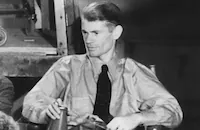
James Whale
Cast
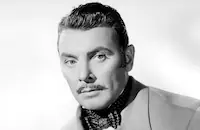
George Brent

Martha Scott

Paul Lukas
Egon Brecher

Roman Bohnen
Edgar Barrier
Kay Linaker
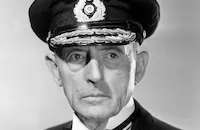
Frank Reicher

Gregory Gaye
Georges Renavent

Peter Cushing
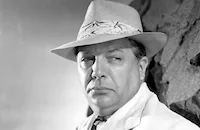
Cy Kendall
Leon Belasco
Bodil Rosing
Erwin Kalser
Leslie Denison
Brenda Henderson

Richard Lyon
Stanley Brown
Hans Schumm
Walter Stahl
Marguerita Sylva
Phil Taylor

Sig Arno
Georgia Backus
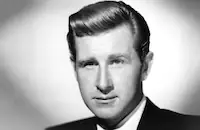
Lloyd Bridges
Fredrik Vogeding
Philip Van Zandt
John Rogers
Charles Wagenheim
Nicholas Bela
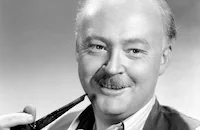
Don Beddoe
Gerald Pierce
Olga Borget
Poppy Wilde
Paul Power
Jack Gardner
Philo Mccullough
Richard Fiske
David Oliver
Jack Chefe
Ed Fetherston
Jac George
Paul Deno
Fred Wolff
Hans Fuerberg
Robert Heller
Harry C. Bradley
Crew
Lionel Banks
Charles Bennett
Ed Bernds
Samuel Bischoff
Al Clark
James Edward Grant
William Mull
Franz F. Planer
Saltern
M. W. Stoloff
Ernest Vajda
Charles Vidor

Film Details
Technical Specs

Articles
Martha Scott, 1914-2003
Martha Ellen Scott was born in Jamesport, Missouri on September 24, 1914, and raised in Kansas City, where a high school teacher encouraged her interest in acting. She majored in drama at the University of Michigan and after graduation, she joined The Globe Theatre Troupe, a stock company that performed truncated Shakespeare at the Chicago World's Fair in between 1933-34. She went to New York soon after and found work in radio and stock before playing making her breakthrough as Emily Webb in Our Town. When the play opened on Broadway in February 1938, Scott received glowing reviews in the pivotal role of Emily, the wistful girl-next-door in Grovers Corners, New Hampshire, who marries her high school sweetheart, dies in pregnancy and gets to relive a single day back on Earth. Her stage success brought her to Hollywood, where she continued her role in Sam Wood's film adaptation of Out Town (1940). Scott received an Academy Award nomination for best actress and was immediately hailed as the year's new female discovery.
She gave nicely understated performances in her next few films: as Jane Peyton Howard in Frank Lloyd's historical The Howards of Virginia (1940), opposite Cary Grant; the dedicated school teacher in Tay Garnett's Cheers for Miss Bishop (1941) in which she aged convincingly from 17 to 85; and as a devoted wife to preacher Frederic March in Irving Rapper's warm family drama One Foot in Heaven (1941). Sadly, Scott's maturity and sensitivity ran against the glamour-girl persona that was popular in the '40s (best embodied by stars like Lana Turner and Veronica Lake) and her film appearances were few and far between for the remainder of the decade.
Her fortunes brightened in the '50s, when she found roles in major productions, such as a suburban wife trapped in her home by fugitives, led by Humphrey Bogart, in William Wyler's taut The Desperate Hours (1955) and played Charlton Heston's mother in the Cecil B. Demille's The Ten Commandments (1956) and again for William Wyler in Ben-Hur (1959). Scott found steady work for the next 30 years in matronly roles, most notably on television, where she played Bob Newhart's mother on The Bob Newhart Show (1972-1978) and the mother of Sue Ellen Ewing on Dallas (1978-1991). Her second husband, pianist and Pulitzer Prize-winning composer Mel Powell, died in 1998. Survivors include a son and two daughters.
by Michael T. Toole

Martha Scott, 1914-2003
Quotes
Trivia
Notes
The working title of this film was We Dare Not Love. According to a March 1940 Hollywood Reporter news item, Columbia purchased James Edward Grant's story for $10,000 as a vehicle for Jean Arthur. In June 1940, the studio assigned Charles Vidor to direct the picture, which was now to star Brian Aherne and Joan Bennett, according to a Motion Picture Daily news item. A July 1940 Hollywood Reporter news item noted that Columbia was now negotiating with Luise Rainer to star in the picture. According to a January 5, 1941 Hollywood Reporter news item, the studio was considering Louise Campbell as the second lead. Martha Scott, who was finally cast as the female lead, was borrowed from Sol Lesser to appear in the picture. According to a New York Times news item, the loan was part of a deal in which Columbia, which jointly owned Melvyn Douglas' contract with M-G-M, allowed Douglas to appear in the 1941 United Artists picture That Uncertain Feeling , in exchange for Scott's appearance in this film. George Brent was borrowed from Warner Bros. to appear in this film. Toward the end of production, Vidor took over as director from James Whale, who had fallen ill with the flu, according to a January 30, 1941 Hollywood Reporter news item. They Dare Not Love was Whale's last completed film. He directed a segment of the 1952 RKO production Face to Face, entitled "Hello Out There," but that segment was not in the released film. They Dare Not Love also marked the screen debut of Richard Lyon.














